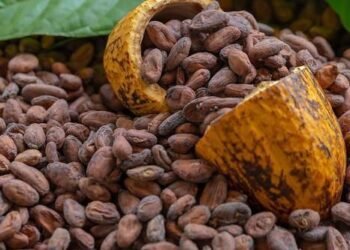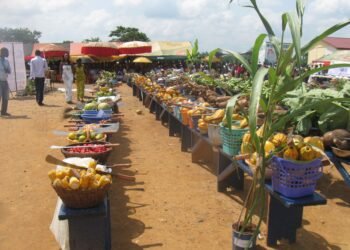The Council for Scientific and Industrial Research-Savanna Agricultural Research Institute (CSIR-SARI), in collaboration with the international Seed Systems Group, has taken a significant step towards strengthening Ghana’s agricultural sector.
Through targeted training programs, selected seed companies, young seed producers, and national service personnel have been equipped with the expertise to produce improved pearl millet seeds. This initiative is a part of a larger effort to enhance food security and livelihoods across Ghana, particularly in the northern regions.
Pearl millet, a warm-season crop known for its resilience against drought and pests, has long been a staple for many farmers in Ghana. However, traditional varieties of millet often underperform, taking up to 120 days to mature and being more vulnerable to environmental stresses. In contrast, improved pearl millet varieties mature within 65–80 days and offer higher resistance to common pests and diseases. These characteristics make them an attractive option for farmers seeking reliable harvests despite unpredictable weather patterns.
Despite these advantages, many farmers continue to use own-saved seeds, which yield suboptimal results. Recognizing this gap, CSIR-SARI and the Seed Systems Group have partnered to increase awareness and access to improved pearl millet seeds, ensuring that farmers can fully benefit from their potential.
Comprehensive Training for Seed Producers
A one-day training session held in Nyankpala near Tamale provided participants with essential knowledge on producing open-pollinated and hybrid varieties of pearl millet. Experts also educated participants on pest and disease management, seed certification processes, and best practices for seed production.
Dr. Issah Sugri, Principal Research Scientist and Deputy Director at CSIR-SARI, emphasized the importance of the training in equipping participants to produce high-quality seeds. He noted, “This initiative is designed to empower seed producers with the knowledge and skills to ensure that improved pearl millet seeds are available to farmers. High-quality seeds are the foundation of sustainable agricultural practices and improved food security.”
Dr. Peter Anabire Asungre, a Pearl Millet Breeder at CSIR-SARI Manga Station, echoed these sentiments, stressing the need for meticulous adherence to best practices in seed production to maintain seed quality and integrity.
The training forms part of the Vision for Adapted Crops and Soils (VACS) project, implemented by CSIR-SARI in partnership with the Ministry of Food and Agriculture, IWAD, and ANTIKA seed companies. Funded by the United States Agency for International Development (USAID) through the Seed Systems Group, the project aims to reach 50,000 farmers across the North East, Upper East, and Upper West Regions.
The focus is not only on providing improved seeds but also on ensuring that farmers have the knowledge and resources to adopt sustainable practices. By promoting mono and relay cropping systems, farmers can maximize yields and contribute to the broader goals of food security and economic resilience.
The Impact on Farmers and Seed Companies
Participants, including representatives from IWAD and ANTIKA seed companies, expressed their appreciation for the training. Ishmael Sedo of IWAD described it as “informative and empowering,” highlighting how the knowledge gained would enhance their ability to produce certified seeds for wider distribution.
For farmers, the availability of improved pearl millet seeds means a significant reduction in crop failure risks. This not only secures their livelihoods but also boosts national food production. Dr. Emmanuel Amponsah Adjei, Country Coordinator of the Seed Systems Group, explained, “Our goal is to ensure that farmers no longer rely on own-saved seeds. Improved pearl millet seeds are a reliable alternative that can enhance yields and transform the agricultural landscape.”
The success of this initiative depends on farmers’ willingness to embrace improved varieties. Dr. Sugri and Dr. Asungre encouraged farmers to adopt these seeds, emphasizing their potential to increase productivity and withstand environmental challenges.
Efforts are also underway to build awareness of the benefits of improved pearl millet. Demonstrations and outreach activities are being planned to showcase the crop’s advantages and encourage widespread adoption.
READ ALSO: Election Buzz Fails to Deter GSE Growth























